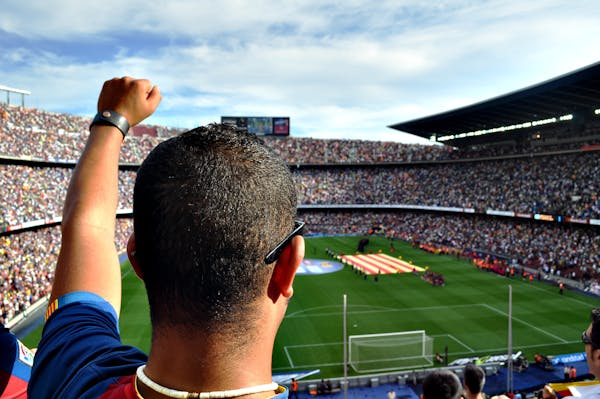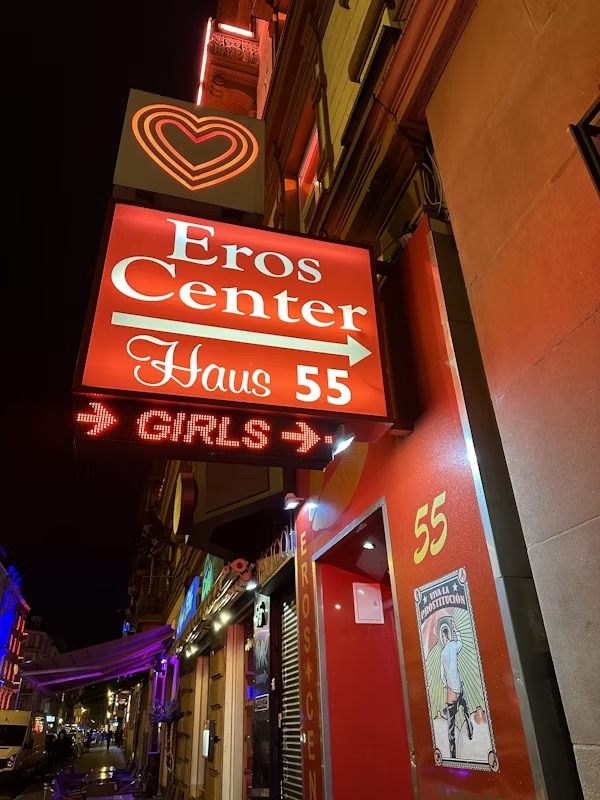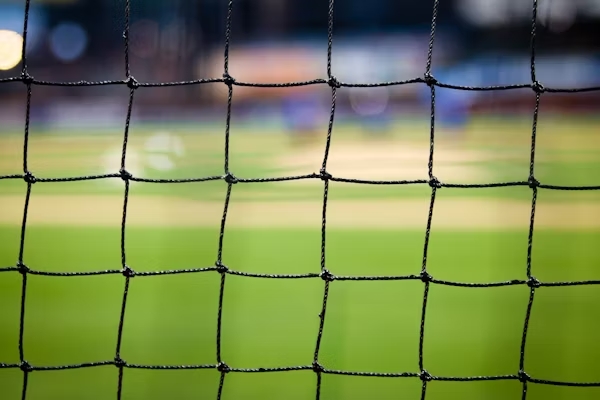Bellowing men with painted faces dressed in the strip of their favourite club, tops off as well later on, beer on their breath and mustard on their beard, on a testosterone rush. The only thing missing for the experience to be truly complete? Sex. And willingly in exchange for money, to avoid any need for niceties. And very often, a wide range of football fan clichés mingle with reality, above all the “nobody-knows-me-here away game” amongst like-minded types.
From 14 June to 14 July 2024, the Men’s European Football Championships – the Euros – were held in Germany, with the venues spread across ten different cities. It wasn’t just the respective teams who were accommodated there, but their fans, who had travelled there specially. The range of sex for sale shot up as a result, although it’s unclear just how much of this involved forced prostitution and human trafficking.

Political voices
Even before the Euros, there were concerns about an increase in forced prostitution and the safety of prostitutes generally. Dorothee Bär, a CSU member of the German Parliament, the Bundestag, campaigned for better protection for prostitutes before the Championships began: “One thing we can see already, for example, is that people are also buying from the major brothels. If your team won, then come and celebrate your victory in real style with us, and if your team lost, come to us and drown your sorrows. So people are quite deliberately being invited here both to celebrate winning and to get over losing, in a very unlovely way.”
According to research by FU! Braunschweig, many escort agencies were also advertising for women to accompany fans to matches or public viewings during the Euros. Some relevant online ads doubled in volume during the Championships.

Leni Breymaier, Women’s Policy Speaker of the SPD Bundestag parliamentary group and founder of the Parliamentary Group for Prostitution and Pornography, told the Rheinische Post that ads were already being placed abroad describing “how easy and legal it is to buy women in Germany. We can also assume such high demand won’t be covered by willing prostitutes during the Euros, so there will be even more forced prostitution as a result.” She’s hoping “people will take a moment to reflect on this before selecting a woman. Does she really want this, do you think, or is she being forced?”
This feared increase in forced prostitution has also been discussed in the German Parliament, the Bundestag. The Government has “consistently campaigned to protect potential victims of human trafficking and forced prostitution”. As a result, human trafficking and forced prostitution were included in the security concept for the Euros, aiming “to sensitise visitors to the stadia, and reduce the number of opportunities on the way there”. Informational material was also distributed at venues, and fans were offered ways to support those affected.
There are numerous other examples of help being offered, from city to city. Cologne has increased the number of its street workers, while Düsseldorf’s health authority has expanded the number of ways to test for sexually transmissible diseases on match days. Dortmund has sensitised fans to the problem using events and campaigns, while the Frankfurt police, in contrast, is proceeding more against street prostitution outside permitted zones.
Only estimates possible
Collecting precise numbers is difficult, because very few prostitutes ever register officially. Nationwide, although around 28,000 have complied with their duty to register, the real figures are estimated to be many times this.
According to Erobella, one of Germany’s largest erotic portals, there has been an increase in prostitutes since as early as mid-May. Extrapolating from these new registrations, the Erobella Research Team calculates that something like 13,700 prostitutes – an increase of around 31% – have travelled there for the Euros. In total, Erobella estimates, there are around 90,000 prostitutes working in Germany.

The largest increase was in Hamburg, at around 4,350, followed, in descending order, by the cities of Berlin, Munich, Cologne and Dortmund – and with just below 60 more prostitutes than usual, Leipzig. Other evaluations indicated that the largest share of the prostitutes, 35%, have come to Germany from Eastern Europe, 24% from Latin America, 11% from elsewhere in Germany, 10% from Asia, and 7% from Central Europe. In parallel with this, prices have been raised – a woman cost an average of 175 euros an hour during the Championships, around 7.5% more than in 2023.
According to EMMA, the Federal Association for the Nordic Model calculated the situation as follows: “1,200,000 clients a day. 80 percent are victims of human trafficking in prostitution. Adds up to 1,000,000 rapes every day.” The alliance of over 30 different initiatives has brought a participatory campaign to life during the Euros.
The #RedCardforJohns – working towards a Euros without sex for sale
In exchange for a donation, everyone could order so-called “Campaign Kits”, including red cards, flyers in various languages, stickers, beer caps and decorative items. There was also a variety of download possibilities for people to print themselves.
Using the slogan “Fan not John”, the Federal Association did important educational work:
“Not an event: countless prostitutes are being brought to venue cities for major sporting events. Most of them have been brought here under false pretences.
Not a home match: most women in prostitution are coming to Germany from the poorest countries. Human traffickers and pimps exploit their situation of need.
Not fair play: women in prostitution experience severe physical and psychological violence. They are forced to do whatever the client wants. He has the money, and with it the power.”
Silvia Reckermann, a member of the professional association, distributed red cards at Munich’s Olympic Stadium. “Most people react very positively to the campaign. We try to come over happily, and we don’t say: ‘Hallo, are you a John too?’ We don’t judge anyone for being a John; we assume everyone is for human rights instead.”
All a question of attitude
The Professional Association for Sexual and Erotic Services drew a happier picture for the Euros. “There is currently no fear of excessive demand amongst colleagues; rather, people are looking forward to a few more clients, and increased earnings, during the football. Apart from this, many sex workers are not quite so negative towards “groups” as one might think – as a rule, they’re perfectly happy to see more clients.” Business is also subject to regular fluctuations such as the beginning of spring, the first of the month and the end of the Christmas period, and is self-regulating as a result.
The words of the FU! Braunschweig seem more appropriate, however: “The exploitation of people in the prostitution industry needs to be fought decisively, and the public need to be educated about the dark sides of these major sporting events.”
#RoteKarteFürFreier #FußballEuropameisterschaft #ZwangsProstitution #UEFAEURO #FanstattFreier #BundesverbandNordischesModell #FußballEM #Sportgroßveranstaltungen #AgainstHumanTrafficking #GegenMenschenhandel #EndExploitation #EndTrafficking #HopeForTheFuture #Österreich
